“Divinity” is as artistically impressive as it is potentially alienating — a visual feast with a lot to say and a unique way of saying it.
Divinity is either a mind-melding masterpiece or a taxing exercise in arthouse pretension — oodles of style but very little substance.
Written and directed by Eddie Alcazar, Divinity offers a stark, black-and-white vision of a retro-futuristic society where the Fountain of Youth has been commoditized, and the soul of humanity rots inside beautiful bodies.
An inherently polarizing production, where it falls for you on the scale of brilliance versus banality, will depend on your appetite for cinema as art rather than purely a vehicle for narrative storytelling.
Strange, surreal, and visually spellbinding, it’s difficult to argue that this monochromatic fever dream is not, in fact, a work of art — a reflection of genuine craftsmanship and a singular vision.
On technical merits alone, it’s a marvel, boasting visually arresting cinematography from Danny Heile and production design from Paul Rice, alongside impressive make-up and practical effects.
For some, the hypnagogic experience of this gorgeous oddity is more than enough to warrant a watch. For others, its bold defiance of structure and narrative accessibility will land somewhere between head-scratching and infuriating.
After a jaw-dropping opening sequence, we meet an aging scientist in the year 3003.
Sterling Pierce (Scott Bakula) is filming a video diary chronicling his scientific work, the obsessive pursuit to suspend the aging process and keep disease and decay at bay. Even as he watches his own body deteriorate, he dreams of a world where death is just an illusion, and he imagines what greatness humanity could be capable of if time was limitless.
Though his own time is certainly limited, he worries it’s not quite stable enough to begin human trials on his breakthrough drug.
Fast forward to many years later. Sterling has passed, and his two young sons, Jaxxon and Rip, are now grown men.
Following in his father’s footsteps, Jaxxon (Stephen Dorff) has succeeded in bringing a version of his father’s formula, Divinity, to the global market.
But it isn’t his father’s vision he’s honoring.
This isn’t a noble quest to save mankind and usher in an age of intellectual awakening. Rather, it’s a bastardized version of Divinity that seeks to exploit the basest aspects of sinful human nature.
Young Pierce has commoditized sex, beauty, and hedonism and molded the world into a morally compromised Sodom and Gomorrah.
It’s a world driven by pride, lust, gluttony, and the pursuit of pleasure above all else.
Meanwhile, two bright light beams fall out of the sky and land in the desert, creating a glowing hole from which two men (Moises Arias and Jason Genao), brothers we later learn — presumably angelic ambassadors, emerge and embark on a journey.
They travel to the isolated home and laboratory of Jaxxon in an effort to stop the fallen son from continuing his pursuit of further developing Divinity and to reveal his inner monstrosity to the world.
Taken hostage in his own home, Jaxxon is force-fed an IV of Divinity, causing him to physically mutate and deform into something closely resembling David Cronenberg’s vision of The Elephant Man.
As the brothers wait for the full effects of the overdose to take effect, they spend several minutes watching television advertisements that help paint a bleak picture of the soulless, superficial, consumer-driven landscape in which nothing matters more than self-gratification.
Soon, a sex worker named Nikita (Karrueche Tran) arrives at the house, and she introduces the brothers to the lure of earthly sexual pleasure, subsequently forming a strong connection to and falling in love with one of the brothers.
Unlike the vast majority of the population, Nikita is considered “pure,” having never used Divinity. As a result, she retains her ability to give birth, something most women have forfeited.
You see, Divinity is a drug that keeps you young, beautiful, and desirable, but it does so at the expense of your fertility; it’s a penance nearly everyone is willing to pay. As Nikita explains, “You can live forever, or you can give life. Most people choose forever; pleasure over love.”
In this way, Divinity serves as an all-too-really allegory for a world more than willing to sacrifice the future for present-day comfort and selfish desires.
The handful of women still capable of conceiving have gathered together in a sort of celestial commune led by Ziva (Bella Thorne), where they remain ready to remake the world in a different kind of image.
The advertisements for Divinity feel eerily similar to a vast number of modern-day commercials and influencer videos hawking the latest “miracle” in anti-aging and beauty products, targeted almost exclusively to women.
Of course, just like in our reality, men in Divinity are certainly not exempt from the pressure and desire to remain in peak physical condition, as represented by Jaxxon’s physically flawless, muscle-bound brother Rip (played by four-time Mr. Universe Michael O’Hearn).
But it’s women who suffer the most exploitation, serving as the sacrificial lambs for the morally bankrupt nirvana.
Interestingly, women in our own reality are typically valued for one of two things: their sexual desirability and their ability to give birth.
In Divinity, women are forced to choose between one or the other; they can’t have it all, and their value as beautiful playthings supersede their worth as life-givers.
In the final, frenetic act, Divinity leans heavily into its more horrific elements.
This is where the phenomenal makeup effects truly shine as we get some gruesome body horror, followed by the film’s most buzzed-about set piece involving an extraordinary old-school stop-motion fight scene from animator Misha Klein. It’s blended with live action, which Alcazar dubs Meta-Scope.
Produced by Steven Soderbergh, Divinity seems to pull inspiration from 1950s science fiction, German Expressionism, and arthouse horror visionaries like David Lynch (Eraserhead), Alexandro Jodorowsky (El Topo, The Holy Mountain) Terry Gilliam (Brazil, 12 Monkeys), Gaspar Noé (Irreversible, Climax), Shinya Tsukamoto (Tetsuo: The Iron Man), and even Ray Harryhausen.
Your appreciation for this type of subversive, highly stylized, and sometimes inscrutable filmmaking will no doubt dictate how much you enjoy (or not) the magic of Divinity.
It’s a film full of big ideas and cutting commentary, but it delivers its dose of cynicism without feeling overly somber or heavy-handed.
It’s ultimately a Frankenstein tale about unchecked medical/scientific advancement at the expense of ethical considerations, man’s desire to play God, and the exploitation of people and resources by the rich and powerful.
It also explores the toxic nature of beauty culture, capitalism, human greed and selfishness, the treatment of women and their bodies, profits over humanitarian concerns, and a rampant lack of concern for sustainability and viability for future generations.
Alcazar is careful not to let the weight of the narrative drag the film down into the depths of melancholy or tedium.
Instead, he lets the visuals do most of the heavy lifting and ensures Divinity keeps viewers mesmerized.
That focus on aesthetics, as arresting and electrifying as they may be, is what will likely turn off many viewers — as evident by the film’s deeply divided critical reception on Rotten Tomatoes.
It’s a bold, uncompromising, highly original vision.
But it’s not easily digestible, and it will try the patience of many who don’t worship at the arthouse altar. Supposedly made without a script, Divinity takes admirable risks but will alienate those who will see the experimental approach as narratively lazy and unnecessarily showy in its embrace of the avant-garde, dubbing it hollow and overblown.
However, many others will no doubt herald this bizarre midnight movie as a future cult classic in the making.
It’s exceedingly creative, oozing visual style and artistic point-of-view, and rich with meaning. It’s also violent, gruesome, and action-packed while simultaneously sensual and ultra-horny.
You may not enjoy Divinity, but I promise it will be unlike anything else you watch this year, and it’s a film that leaves quite an impression.
With a lean hour and twenty-eight-minute runtime, it’s a quick watch and highly worth it, even if you just want to understand what everyone is talking about. And trust me, people will be talking about this one.


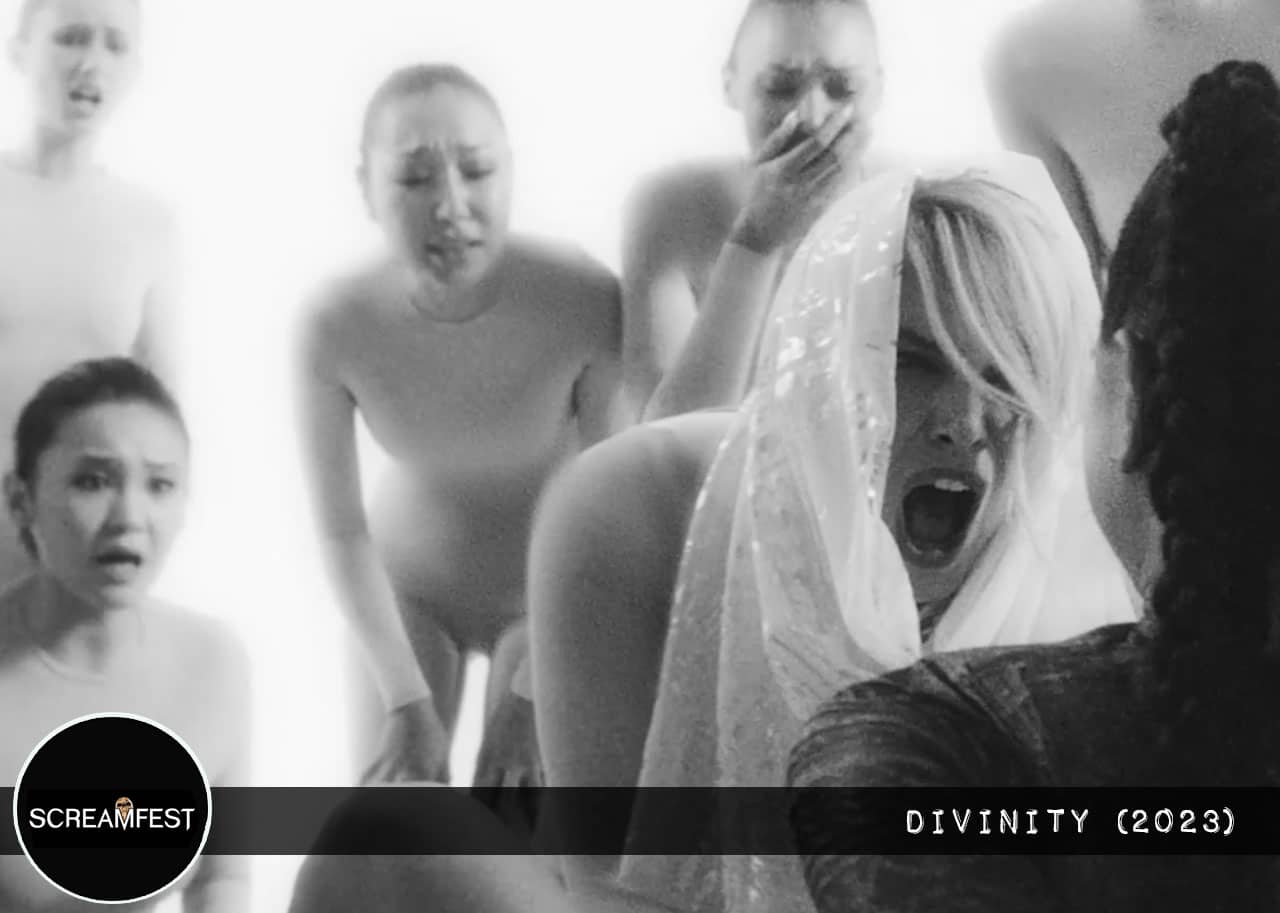
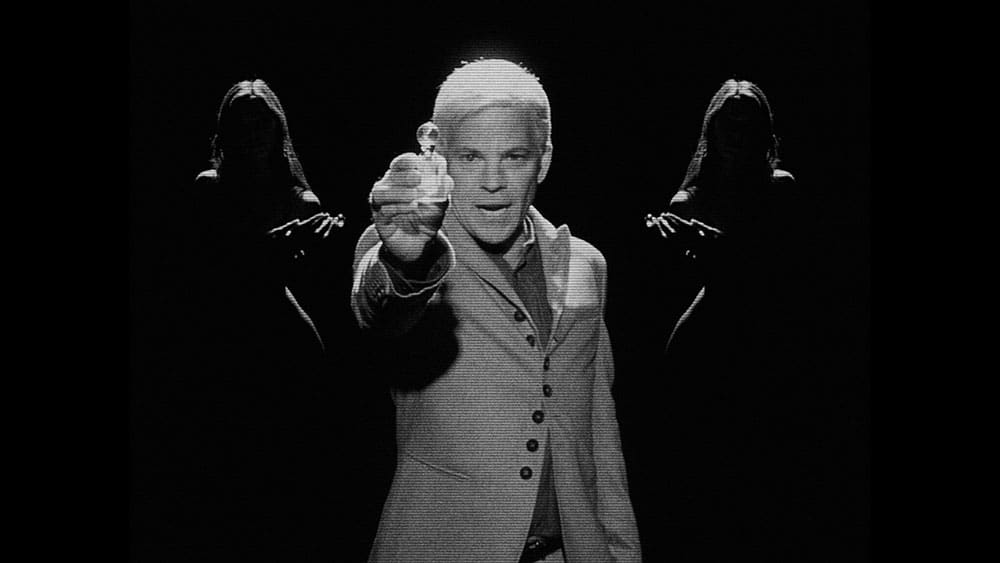
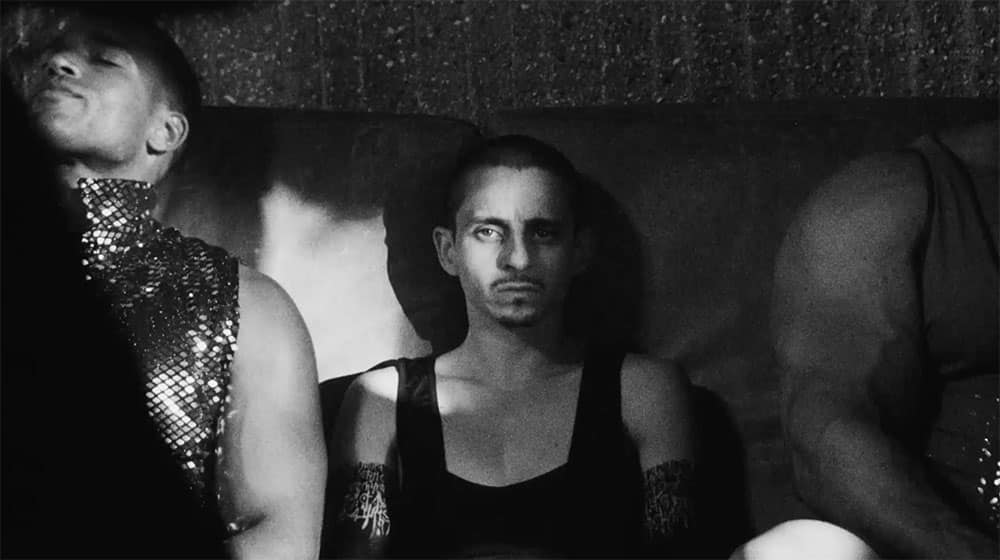
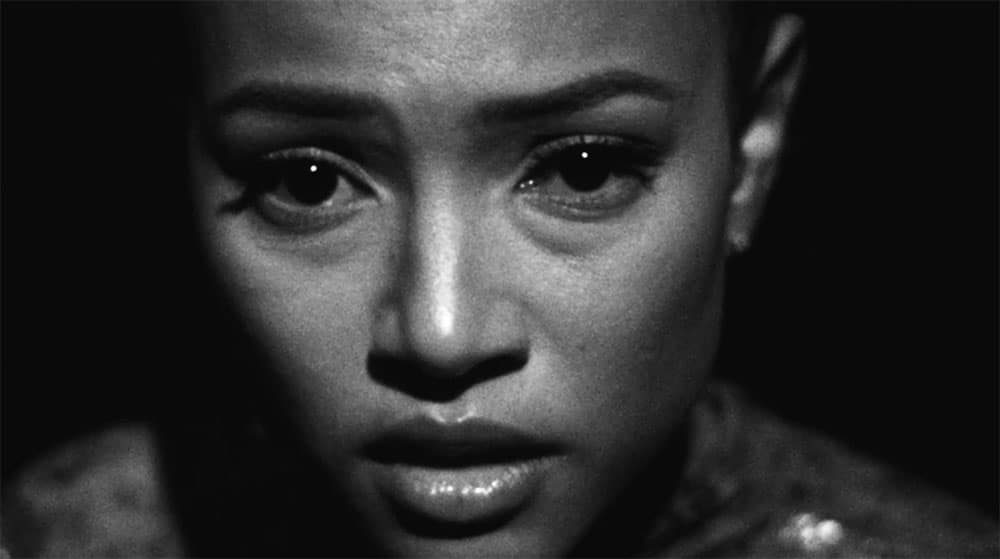
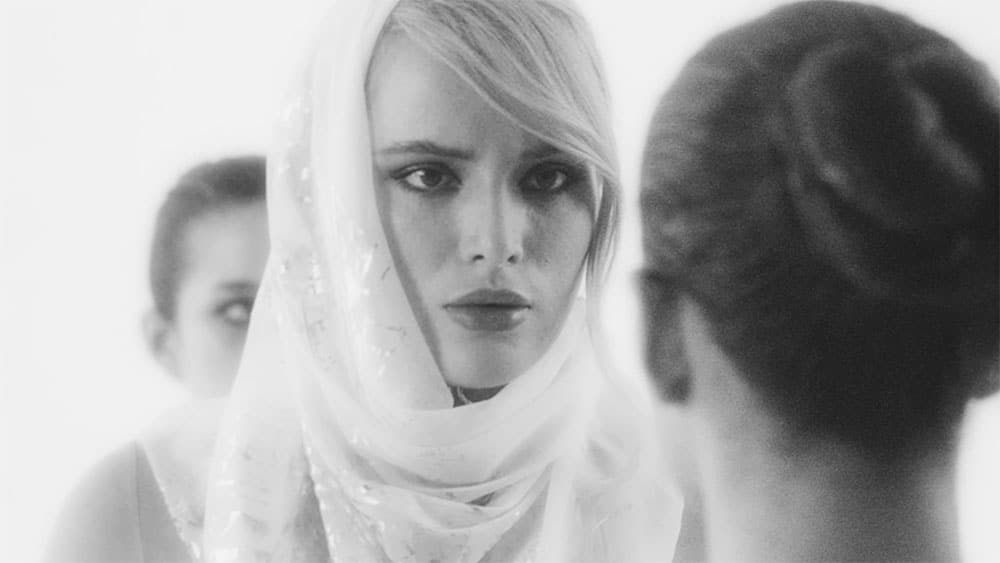
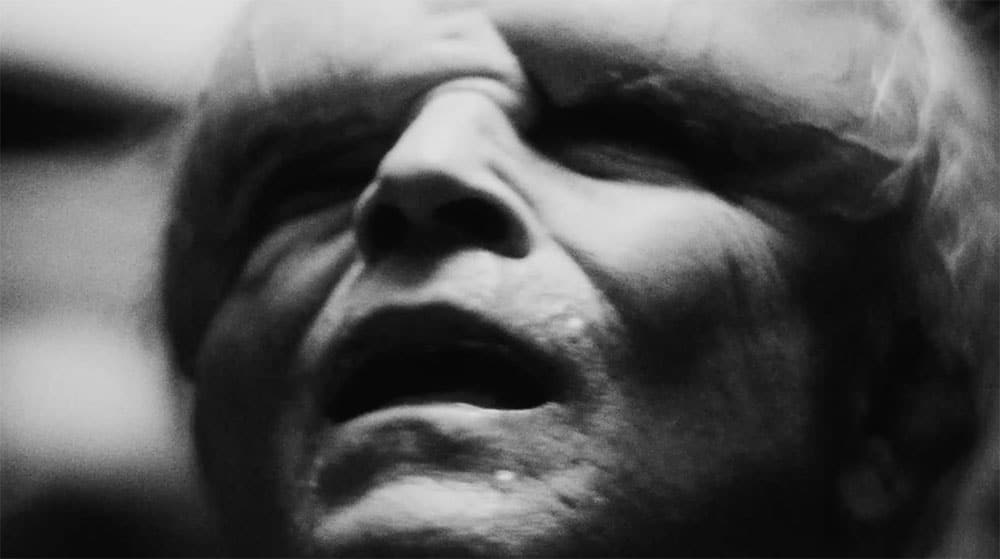
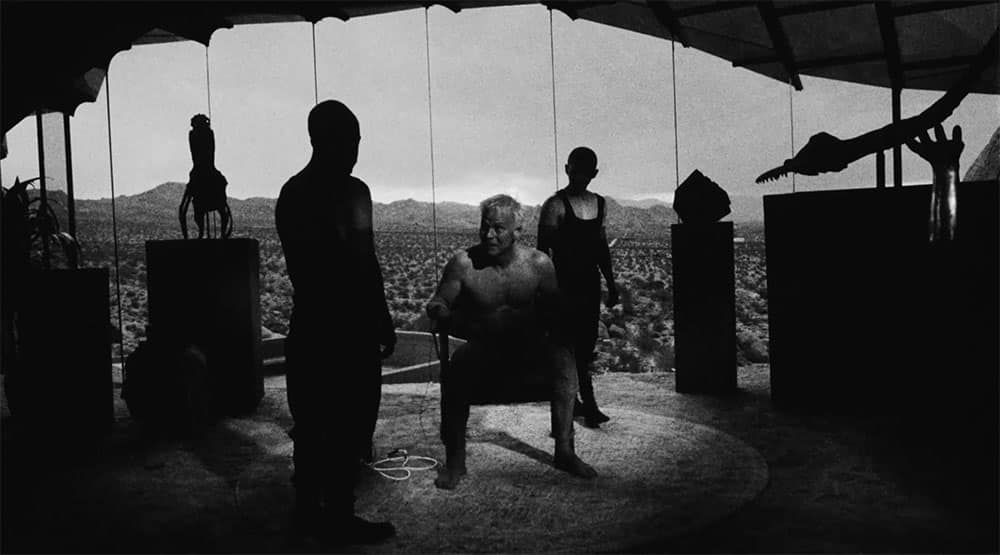

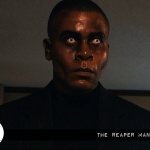

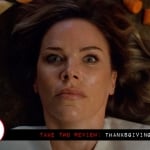








Follow Us!